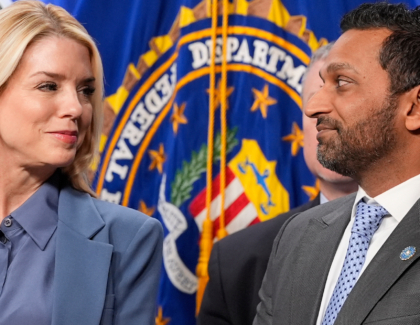Sign up for the daily CJR newsletter.
Last June in Las Vegas, Corinna Zarek told a ballroom full of investigative journalists at the annual Investigative Reporters and Editors conference that she was there to help. “We are the FOIA advocates!” she announced. “This independent office, within government, to help FOIA requesters and members of federal agencies resolve disputes before they lead to litigation!”
I listened with hope. Weeks before, I’d contacted OGIS (the Office of Government Information Services) with a plea for help related to thirty in-process-yet-stalled FOIA requests that the federal government had been sitting on—some for years. Zarek, attorney advisor for OGIS, was on a panel sponsored by the Sunlight Foundation, talking about transparency in government. She was no bureaucrat: before coming to work at OGIS, Zarek had been the Freedom of Information director at the Reporters Committee for Freedom of the Press. She’d also worked as a reporter.
Before the conference, I’d never heard of OGIS, a new agency created by a mandate within the OPEN Government Act of 2007. Most other journalists hadn’t heard of them, either. The agency was founded, in part, to quell the tide of FOIA-related lawsuits burdening the United States government by acting a kind of “FOIA ombudsman.”
The OGIS offices opened their doors on September 8, 2009 in Maryland, and began fielding requests for help that very same day. Aside from mediation, OGIS was also tasked with providing recommendations to Congress and the Senate on how various arms of government could better manage and process FOIA requests.
After the IRE panel in Vegas, I approached Zarek. She looked me in the eye, apologized for her office’s lack of response to the e-mails I’d sent, and promised to personally look into my FOIA situation. The next day, I received a call from an OGIS rep, which led to months of back-and-forth emailing with one of the seven OGIS staffers, in an attempt to get the State Department to provide information about my pending cases.
Ultimately, though, OGIS didn’t help. After inquiring at the Department of State, they were given the same old answers that had frustrated my lawyers and I: State was working on it. There was a backlog, and I was in line.
For the past two years, OGIS has been trying to be a transparent, useful agency. In March 2011, it launched a handy FOIA blog, and according to a first-year report (PDF) published that same month, it has claimed overall success and positive outcomes in the majority of cases it handled. In its first year, the OGIS caseload consisted of 391 FOIA cases from forty different states. OGIS reported having aided 80 percent of requestors reach “agreement” with the government agency that was giving them trouble. By its second year, OGIS had helped over 1,200 requesters.
But today, many have never heard of OGIS, let alone used it to help with stuck or pending FOIA requests. “I don’t know of any experience with OGIS here,” Andrew Donohue, founder of the investigative website Voice of San Diego, told me via e-mail. Ryan Gabrielson, staff reporter for California Watch, said he’d never used them, either. Neither had Doug Longhini, an investigative producer at CBS News.
After over two years of work, has OGIS actually had an impact in preventing FOIA-related lawsuits?
According to the FOIA Project, a web venture of the Transactional Records Access Clearinghouse and Syracuse University that aims to “bring transparency to the process by which the U.S. government withholds information,” a total of 379 FOIA-related lawsuits were filed against U.S. federal government agencies in fiscal year 2011. The FOIA Project tracks litigation by routinely performing PACER searches of the courts, and posting the findings online in blog form. Those 379 cases were, it noted, an increase of 27 percent from the year before.
The number of lawsuits pales in comparison to the annual amount of FOIA requests received by federal agencies. In its most recent report (PDF) from fiscal year 2010, the Department of State reported fielding 30,206 FOIA requests. By the year’s close, 21,135 remained pending. The fastest turnaround for a Department of State request was a single day, while the longest was recorded as 2,162 days, or almost six years. Furthermore, the 2011 Knight Open Government Survey (PDF) found that twelve different federal agencies reported having in-process FOIA requests that had been pending for over six years old. The Knight survey made no mention of OGIS.
In November 2011, OGIS director Miriam Nesbit told the government and technology blog Nextgov that FOIA delays were one of the major themes of the disputes handled by her office. She admitted that OGIS’s recommendations on FOIA improvements had sat, unread, for over nine months inside the Office of Management and Budget (OMB).
When asked about the delay, Nesbit said that the OMB’s attention was on the federal budget. “There’s not a lot more that I can add,” she told me. “Except that we hope that the recommendations will be approved fairly soon.
Lucy Dalglish, executive director of the Reporters Committee for Freedom of the Press, told me that she feels profoundly disappointed over how the Obama administration has handled the OGIS recommendations.
“They have a wonderful website, and they’re marvelously responsible to requests. They’ve done some very good things,” Dalglish says of OGIS. “But they have no actual ability to make anybody do anything. I encourage people to go to OGIS with simple problems, but for anything else, I still tell people to go ahead and sue.”
“That’s the only way you’re going to get anything,” she continues. “OGIS is not the answer for changing the culture of secrecy in this administration.”
Has America ever needed a media defender more than now? Help us by joining CJR today.






